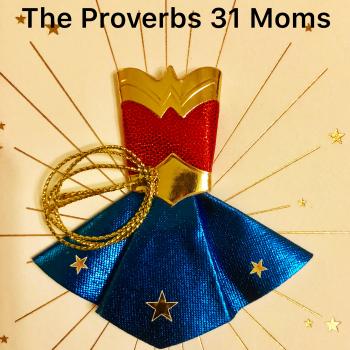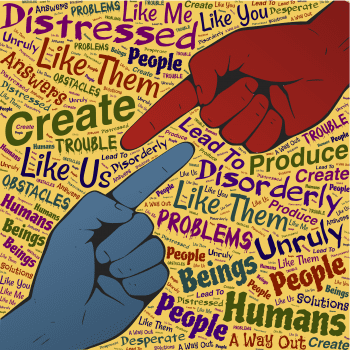Many schools across America have addressed violence between students in the form of Anti-Bullying campaigns. However, this has not stopped the widespread concern from parents that their kids are still getting bullied by peers at elementary or middle schools. In the past seven years of my private practice, I’ve counseled dozens of children and their families in which physical aggression was involved one way or another. Of all those families, no bully has come forth, just victims. However, from working with these kids, often over a span of several months, I’ve come to realize that the issue is not black and white. Just as is true of other human affairs, there are shades of gray. In another article, I will address how to help your kid from becoming a bully. This one focuses on helping kids who appear to be the victims.
First, assess the situation. What is your kid saying about it? Stay calm and composed while showing concern. Your primary job is not to investigate the truth of the matter, but to provide empathy and support to your distressed child. Please note that the minute she senses your anger, shock, disgust, or even frustration, her defenses go up and she may exaggerate or tell half the story—the half that makes her look innocent and draws on your parental sympathy. Half truths are unhelpful. So try to focus on attuning to your child’s unspoken needs at the time. Is she more worried or sad? Is he more frustrated or scared? Is she more cautious or distressed? When you focus on being your child’s steadfast supporter and cheerleader, s/he is not on the hot seat at home, even if this is indeed the case at school.
 Second, after providing empathy for his situation, explore with your son what could have caused the “bully” to be mean to him. In cases where there’s no physical injury involved, make “I wonder…” statements such as, I wonder what happened to him to make him say such mean things? You are such a good kid, I wonder why she would pick on you instead of another girl? I wonder what he was feeling? It must not be that wonderful for him to act like that. I wonder if she’s been treated like that by an older sister and now she thinks it’s okay to boss over people? Oftentimes, your child’s responses will provide you with more helpful information that paints a bigger, more accurate picture of the situation. These gentle, but focused exploration also allows your child a chance to think things through more critically, possibly see the alleged bully in a different light, and feel empowered.
Second, after providing empathy for his situation, explore with your son what could have caused the “bully” to be mean to him. In cases where there’s no physical injury involved, make “I wonder…” statements such as, I wonder what happened to him to make him say such mean things? You are such a good kid, I wonder why she would pick on you instead of another girl? I wonder what he was feeling? It must not be that wonderful for him to act like that. I wonder if she’s been treated like that by an older sister and now she thinks it’s okay to boss over people? Oftentimes, your child’s responses will provide you with more helpful information that paints a bigger, more accurate picture of the situation. These gentle, but focused exploration also allows your child a chance to think things through more critically, possibly see the alleged bully in a different light, and feel empowered.
If there was physical harm or threat of imminent harm to your child, and you believe your child has not instigated or reciprocated, then calmly let your child know that you will be talking with the appropriate authorities to alert them of the situation so that he will be protected in the future. Should you find the need to approach any school staff or parent, be matter of fact, concerned for your child, and exhibit a cooperative attitude. You can be your child’s most formidable ally without being angry or accusatory with other adults.
In most incidences just from exploring with the child, I have found that the bullying was nothing more than teasing, put downs, or impulsive back and forth pushing between kids (much like between siblings). In these cases, I advise the parents to continue working with their kids’ self esteem, self confidence, and peer conflict resolution skills. The higher their self esteem and confidence, the less likely they are to react in unhelpful ways to aggressors (thereby inadvertently perpetuating the conflict), or to become the bullies themselves (unwittingly triggering others). In order to raise Superkids, refer to my tongue in cheek blog on how to be Supermom.
Third, provide pointers on how to deal with peer conflicts. If you do not feel comfortable coaching your child in effective strategies, then enlist the help of a school counselor, teacher, or professional therapist. However, most parents have the ability to coach their kid if they first cool themselves down. Even though this is difficult to do, tone down your own emotions. Try to figure out the situation from a third person/bird’s eye angle.

Talk with another parent or adult to find out what they think is going on, especially if your child says it’s a recurring problem. As previously stated, peer conflicts are oftentimes not a clear-cut aggressor versus victim situation, but more a matter of chain reactions. The alleged bully is a kid with feelings and thoughts like your child. He was probably angry, frustrated, or impulsive and has not learned to deal with his feelings in healthy ways.
When you are not feeling annoyed or frustrated, role play with your child how to respond to aggressive kids. This gentle guidance sends him the message that he is accepted, loved, and supported. Self assured kids are their best defense against any would-be aggressors. Help your child to see that school can be a safe place for learning about people and gaining social skills. Maybe the bully is not that invincible or evil after all? As a parent, you are not responsible for counseling the peer, but you can validate your child’s difficulties by sharing about your similar childhood struggles. Let your daughter know that if she feels strong enough, she can come alongside this peer and help her feel better. However, if she does not feel up to the task, give her permission to take care of her own well being by staying away from this troubled kid. Then affirm her choice.
Finally, remind your son that while he can stay away from the peer to avoid conflicts, he might beware that the peer has feelings and may take his peacemaker attitude the wrong way. So let your young child know that he can immobilize the bully by telling him jokes (begin with self deprecatory ones), laughing with him, or giving him a small token (such as a piece of candy/sticker) as a friendly gesture. I often tell my boys and clients that I laugh at myself the most. This disarms everyone around me from seeing me as a threat. Furthermore, if they tease me, I laugh with them so they are not laughing at me. The truth is that I am a funny person even though I don’t mean to be. I have offended/hurt people inadvertently many times. Life has taught me that I am a victim of no one but myself. Teach your kids that with a little bit of tact and a big heart, we can neutralize any enemies, even turn them into allies. By not instinctively coiling in fear or retaliating (reacting to someone else’s hurt with our own venom), we can avoid peer conflicts before they even begin. True strength is self control, not tit-for-tat in the form of physical aggression or verbal abuse. Then seize as many opportunities as you can to acknowledge the awesome power that you see developing in your child.












